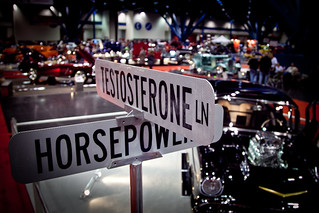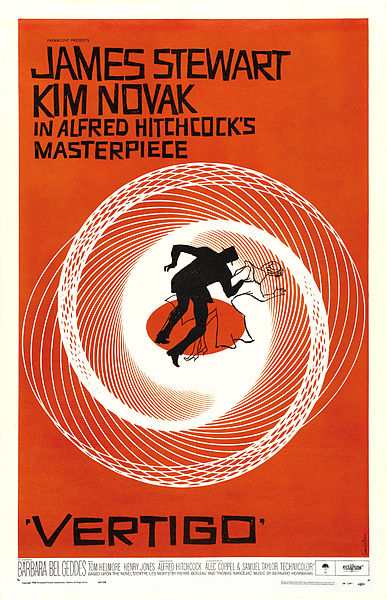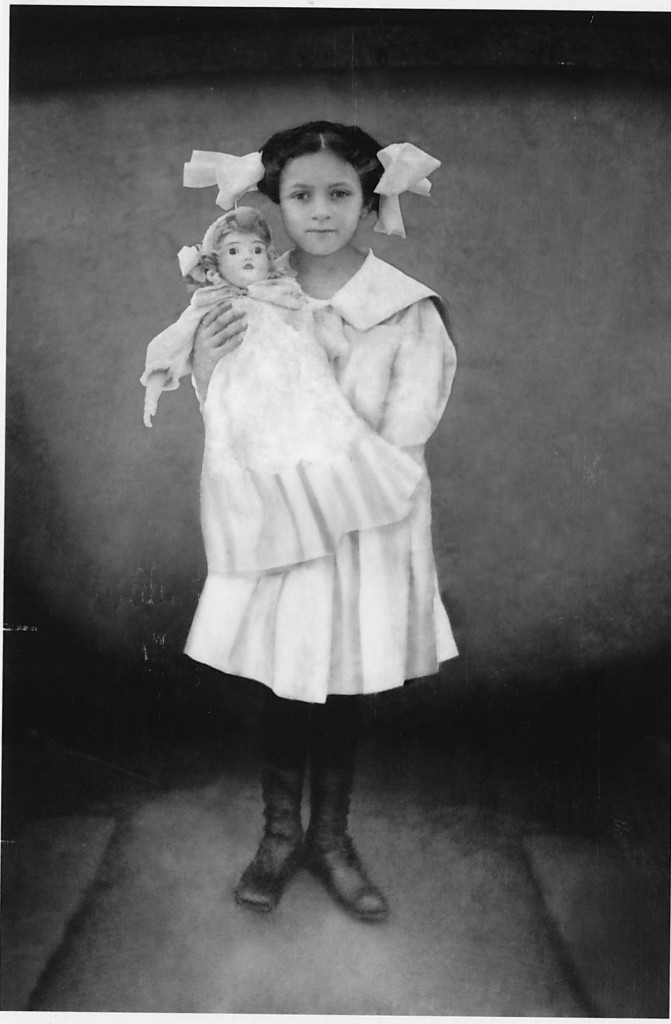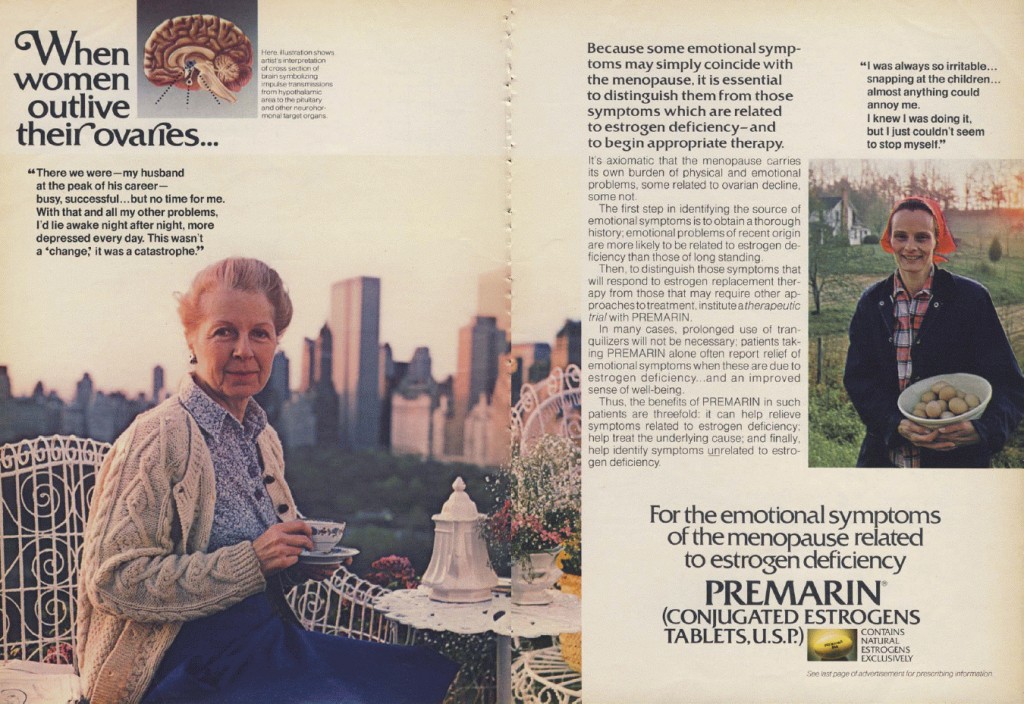Let it bleed…
I hate to start Monday off on a bad note but I’ve got some rather unpleasant news to share: the menopausal transition is pretty darn bloody.
For many of us in late perimenopause, this abnormal bleeding might come as quite a surprise. I was fairly certain that as my menstrual periods slowed, so would the blood flow. However, the bleeding appeared to worsen the closer
I got to actual menopause. It was so heavy, I would find myself going through super pluses every hour for at least a day and a half. It was truly as if the little boy took his finger out of the dam. To make matters worse, the irregularity in the amount of blood was accompanied by irregularity in the number of bleeding days, led to thoughts that often sounded like “I’m too old for this crap.”
Sound familiar?
Fortunately, this is normal. Indeed, in the first long-term (10+ years), multi-ethnic study of its kind, University of Michigan researchers found that among 1,320 ethnically diverse women (White, African-American, Chinese/Japanese), 91% reported that at one of their periods over three years lasted 10 days or more! Nearly 88% reported spotting for six or more days consistently over their cycles. And, about 78% had three or more days of heavier than normal bleeding. What’s more is that a quarter of the women reported having heavy bleeding lasting 10 or more days within a six month period. Common factors that appeared to contribute to abnormally heavy bleeding included uterine fibriods, use of hormone replacement, and overweight and obesity (i.e. BMI 25 to 29.9 and >30). Current smokers were also more likely than non-smokers to have three or more days heavy bleeding.
Over the 10 years of the study, the women, all of whom were either in early or late perimenopuase and were only, on average, 45, kept regular diaries so the information about blood flow and duration are accurate. (By the by, early perimenopause is defined by a difference of at least a week persistently over consecutive menstrual cycles and late, as the first occurrence of a cycle length of at least two months.)
There is a wee bit of good news for our African-American and Asian sisters, both of whom fared far better in the heavy bleeding department (African-Americans were less apt to report 10+ or 6+ days of heavy bleeding or spotting while Asians were less likely to report 3+days).
So, what’s the lowdown? If you are in the menopause transition, you can expect to have longer menses with more days of spotting and heavier bleeding. The down side is that experts don’t have much advice as to what to do about it.
No doubt about it; let it bleed.
Read More
Cosmetic surgery for guys?!
Last week, I talked about how men’s self-perception changes over time, as they age. After the column, I was amused and touched to have one friend contact me and ask if I was okay. The answer, for the record, was and is yes.
I’m pretty comfortable with my physical self. That doesn’t mean I wasn’t ecstatic to be on my bike last Sunday for my first outside ride of the season, or looking forward to dropping a few pounds from around the waist as I ride more and more frequently.
I am in not even in the ballpark where I might consider getting a surgical procedure done to enhance my looks. But apparently, more and more of my counterparts are in that ballpark. According to a Business Insider article, men are the new growth area for cosmetic surgery. The American Society for Aesthetic Plastic Surgery reported that cosmetic procedures carried out on men more than doubled between 1997 and 2012.
According to this New York cosmetic surgeon, there are four types of guys who get cosmetic surgery: the “male model”, the “bodybuilder”, the “CEO”, and the “athletic dad.” I don’t fit any of those, so perhaps that’s why cosmetic surgery is not on my radar. He also associates certain types of procedures with each of those types.
So what do guys get done? The top five procedures (in the US at least) are: liposuction, rhinoplasty, eyelid surgery, breast reduction to treat enlarged male breast, and ear shaping. While you might associate cosmetic surgery with hair replacement, that procedure on its own is almost as big as all cosmetic surgery in terms of numbers of procedures.
I don’t want to judge. If someone wants to get one or more of these procedures, that’s up to them. For me, I think of it like spending megabucks on hotsy-totsy carbon wheels for my bike. Yes, I might save up to a pound. But of course, if I ate better and exercised more, I could probably lose way MORE than a pound.
Like most choices we face, cosmetic surgery has benefits, risks, costs and opportunities attached to it. For me, I can’t make the calculation work out in favour. But where do you draw the line? Are contacts a cosmetic procedure? What about manscaping? What about men who wear cosmetics?
What decisions have you made? How far are you willing to go to keep or enhance your looks? Tell me about it in the comments.
Read MoreGuyside: Getting testy about testosterone
 There’s no doubt that men think about the effects of aging on their bodies. And if there were, a viewing of ads for hair colouring, hair thickening agents, or erectile dysfunction drugs would quickly convince you. You could be a new man!
There’s no doubt that men think about the effects of aging on their bodies. And if there were, a viewing of ads for hair colouring, hair thickening agents, or erectile dysfunction drugs would quickly convince you. You could be a new man!
And as regular Flashfree readers will know, one of the things that’s been touted as a solution to the woes of the aging male is testosterone replacement therapy.
The basic idea is that men may have a condition that’s referred to as “Low T.” And so a gel, a patch, a tablet or an injection may bring you back to a more energetic, athletic, virile condition. The pitch has been made more and more convincingly, by all accounts: an Australian research team found that the sales of testsosterone treatments went from $150 million in 2001 to $1.8 billion in 2012.
That’s a 1200% increase. The Australian research indicated that the amount of testosterone being prescribed far outstripped the incidence of “male menopause” or andropause. So what’s going on? Oh, I suspect there’s a generous helping of vanity involved here.
But if it were simply a matter of making men feel better about themselves, it would just be a waste of money. A growing body of research evidence is suggesting that treating Low T may increase the risk of cardiac events. The most recent, an article from the open-access journal PLOS ONE, suggests a substantial increase in the risk of myocardial infarction — what we normally refer to as a heart attack — with the use of testosterone, for men under and over 65 years of age.
I’m sure there are men with diagnostic criteria that would make testosterone therapy an appropriate choice, with a careful calculation of the risks and benefits. But if my hair’s getting a little thin, if I’m not feeling as “macho” as I once was — do I really want to be using a hormone supplement that could put me at risk of a heart attack?
It’s very easy to succumb to marketing-based pitches that appeal to what we think we need as men. But it’s important for us to not jump at those pitches without thinking about the risks and the benefits carefully.
There was a rush to use estrogen and progesterone to help women with symptoms of menopause several years ago, and then a panic when those therapies were associated with increased cardiac symptoms.
I’m no doctor, and I’m certainly not saying that nobody should be using hormones in this way. But I do think that we should think through ALL of our medical decisions and ensure we’re taking the risks seriously.
(photo: CC-licenced image by Flickr user Ed Schipul)
Read MoreI’m so dizzy…
my head is spinning.
Those of you in my generation will remember this song by Vic Reeves with the Wonder Stuff. Talk about a one hit wonder! Or Vertigo, the incredible film by Alfred Hitchcock. But, dizziness is anything but wondrous and having suffered a form of vertigo that occurs when the head changes position (also known as benign paroxysmal positional vertigo or BPPV)), I can share that it’s an awful experience. The last time it happened, I didn’t leave the house, didn’t drive and required motion sickness pills to sleep.
The reason why I’m sharing this with you is that BPPV occurs in at least twice as many women as men and its likelihood increases with aging. More troubling is the fact that study findings suggest that hormonal fluctuations — especially during menopause — appear to play a role. Historically, BPPV has been linked to the dislodging of crystals in the inner ear, which causes a greater sensitivity to gravity. Thereafter, changes in head position, for example, lying down, looking up or turning over in bed can cause brief vertigo spells. Although most of the time researchers don’t know why it occurs in some people versus others, BPPV has been linked to head trauma other ear conditions.
The most current research comes from a study of over 1,300 individuals, almost 1,000 of whom were women. I’ve already noted that in the general population, BPPV occurs in twice as many women as men. In this population, not only were women in the 40s three times as likely as their male peers to develop BPPV, but most of them reported being in perimenopause, suggesting that hormonal fluctuations , especially estrogen, were at play. What’s more, some data suggest that there is as we age, there is a deterioration in the protein that help anchor the inner ear crystals, and estrogen appears to help promote this.
The silver lining is that while there is little that can be done about aging and estrogen’s role in BPPV, the problem can be successfully addressed with a series of head maneuvers that help restore the crystals back to their former position. Still, I personally find that I get periodic vertigo sensations at the oddest times and that they tend to worsen during my worst hormone movements.
Dizzy Lizzie? Sure, I’ll admit to it. What about you?
Read MoreThe grandmothering clause
Researchers have long attempted to unravel the reason that menopause exists and the role that the loss of reproduction plays in our evolution. Among the various theories that have been tossed around, grandmothering, first proposed in an article that appeared in The Proceedings of the National Academy of Sciences in 1998, continues to maintain traction. This theory proposes that the lifespan of aging women is prolonged beyond reproduction to allow them to help provide for their daughter’s offspring and enhance the next generation’s fertility. This theory is further supported by a study published in the Proceedings of the National Academy of Sciences in 2008 that suggested that women rapidly stop producing reproductive hormones around mid-life to reduce competition with younger females in the same family unit…in other words, a majority of women cease to have the ability to breed so that the next generation can step in. Evolutionary-wise, this hard-wiring was established to reduce the likelihood of reproductive conflict with younger females who might marry their sons.
Grandmothering, albeit not a legitimate term, is understood by just about every woman that I know. And it’s not surprising that grandmothers apparently play as much a role in our later years as perhaps they did in when we were children.
The photo accompanying this post is one that was taken of my grandmother, Doris Baum Scherer when she was about six or seven years old. Her resolute expression is striking, and she carried this resolution with her to her death. I think about my grandmother every single day.
What I remember most about her is her ability to overcome obstacles; she was never given the opportunity to attend college and yet her intelligence and smarts eventually led to numerous opportunities. During WWII she led the local Ladies Auxiliary to support the veterans and long before then, she taught herself to drive. And like her sister and mother, she was a sharp businesswoman. She provided substance and sustenance to my life, in particular, reminding me when I ventured out of the corporate world to become self employed, that I could do anything and be anything that I set my mind to. And while my path provided neither my mother nor her an opportunity to provide for my offspring, she embodied the tenets of the Grandmothering Clause; my grandmother was an expert at grandmothering.
Ironically, I have reached an age where many of my contemporaries have become or are becoming grandmothers; I bide them well in the grandmothering journey, a journey whose reach and influence are immeasurable. and, to my grandma? Thank you for your gift.
Read More
Have you outlived your ovaries?
“This wasn’t a change; it was a catastrophe.”
It is difficult to argue with a proper woman who claims that her symptoms are catastrophic, so much so that she needs to ‘relive’ and ‘re-prime’ her reproductive organs. When the message equals the madness, vintage advertising is at its finest. You can’t argue with science, right?! Ironically, this ad appeared in the Journal of the American Medical Association in 1975, the very same year designated by the United Nations as International Women’s Year. Clearly, Big Pharma didn’t get the memo!
Read More









